Instagram Account Shows the Scary Reality of Women’s Bathrooms
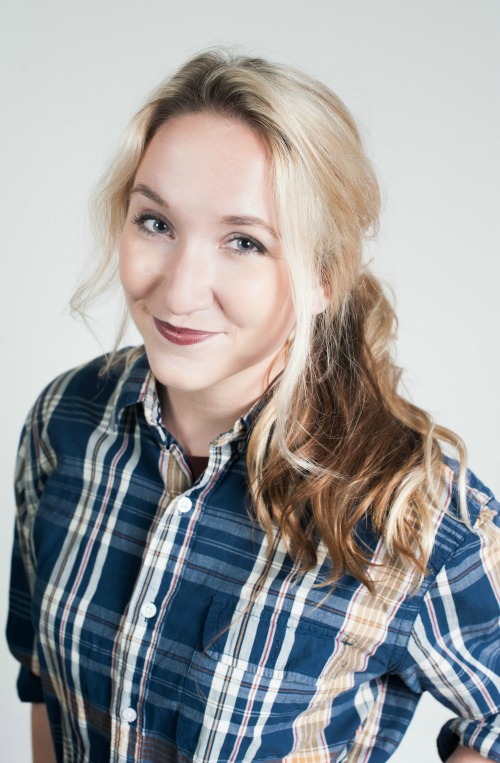
By:
I started an Instagram account featuring toilets because I found out that bathrooms can kill people.
Sometimes it’s the lack of a bathroom — women are raped or murdered on their way to relieve themselves in places around the world — other times, the United Nations reports, people get sick and die after consuming water contaminated with fecal matter.
ALSO: Here's Why Transgender "Bathroom Panic" Is Ridiculous
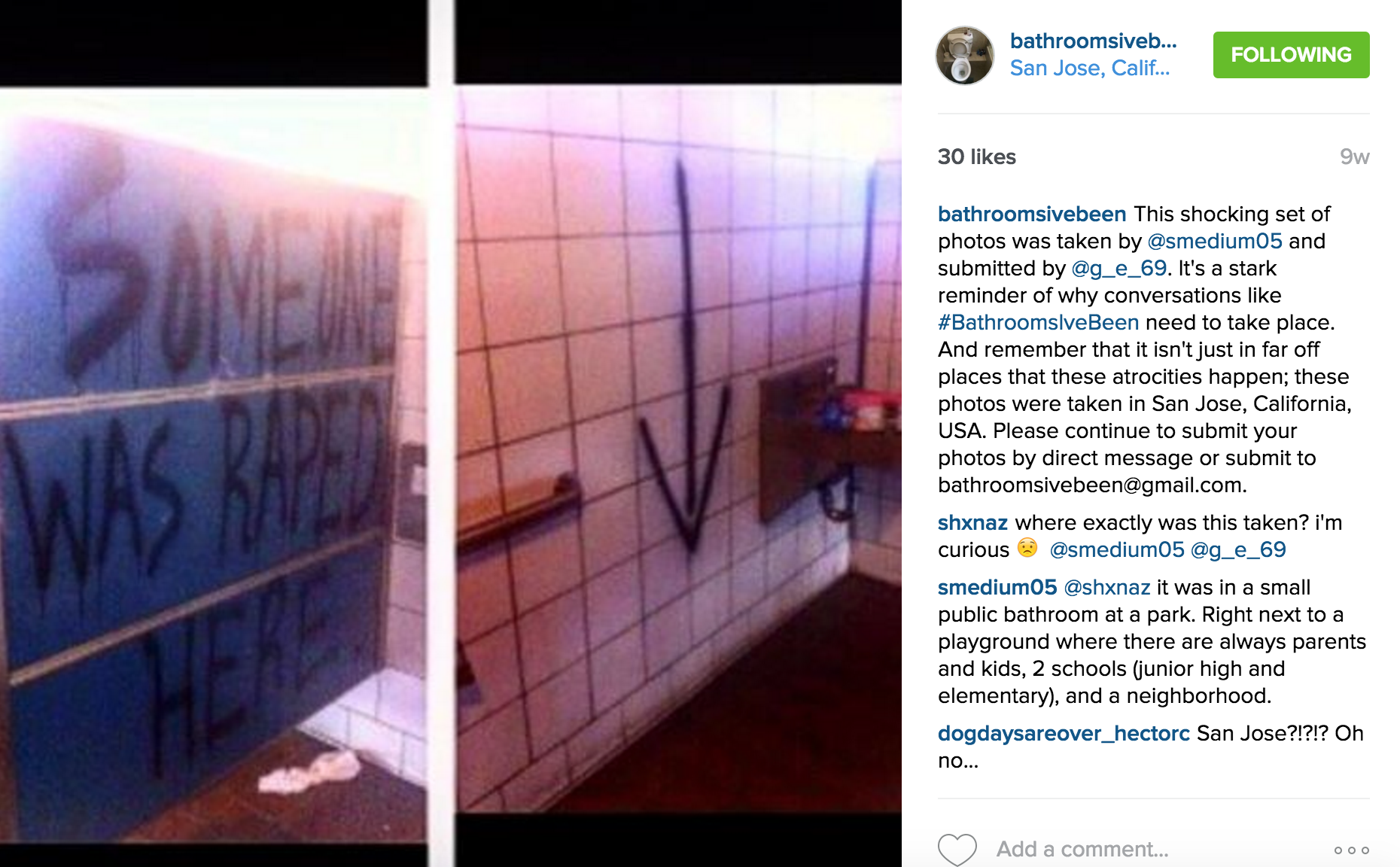 @bathroomsivebeen - instagram.com
@bathroomsivebeen - instagram.com
Since the year 2000, Bloomberg reports that globally, more than 10 million deaths of children under the age of five were due to a lack of toilets.
There's a lack of toilets in America, too.
My Instagram account is called @bathroomsivebeen, and it exists to bring light to a public health crisis that’s happening right now, including your city.
It’s unrealistic to imagine that everyone in America has a place to go to the bathroom, especially for homeless or low income women and their children.
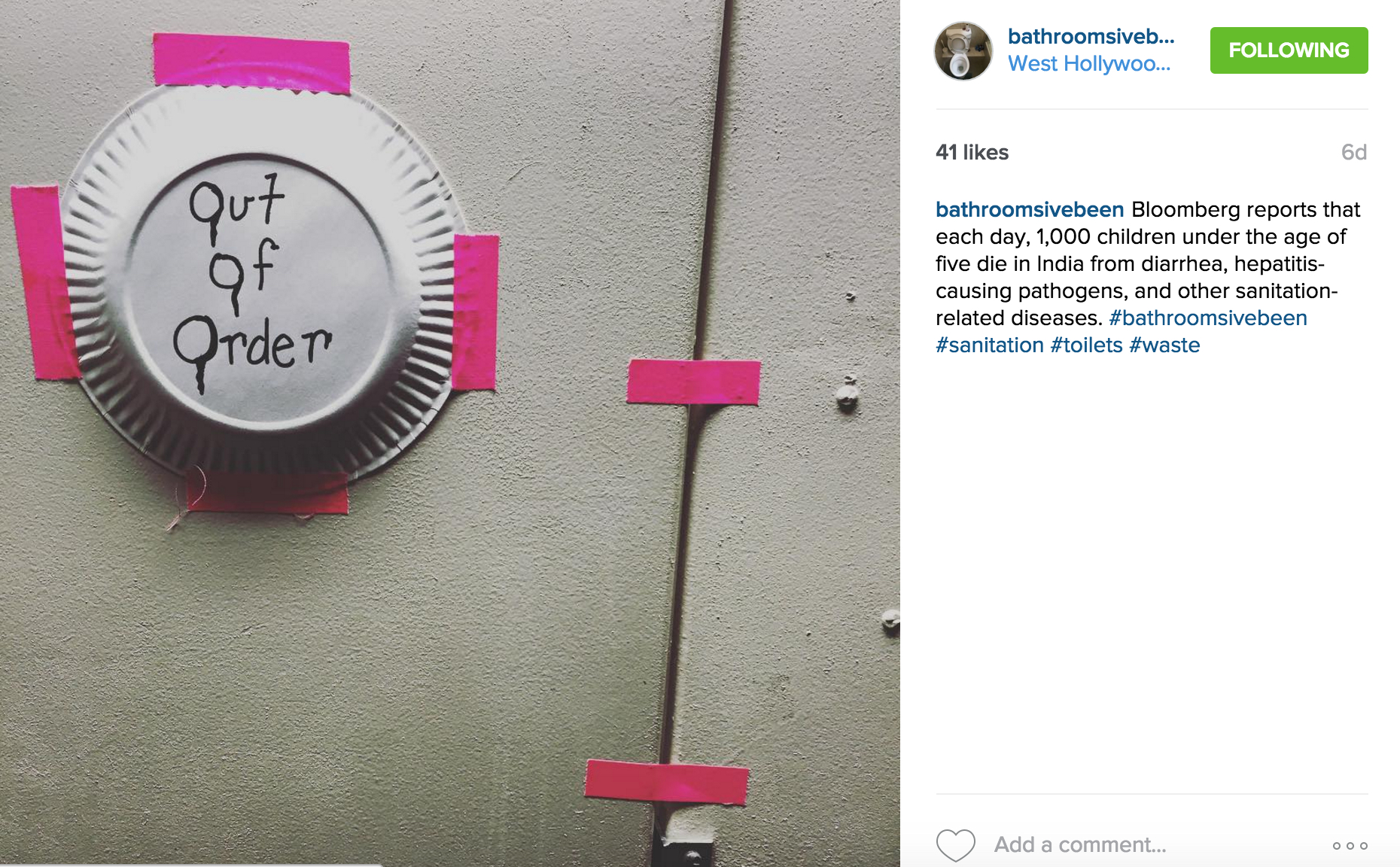 @bathroomsivebeen - instagram.com
@bathroomsivebeen - instagram.com
How many families are homeless in America?
On any given night in January of 2014, there were 67,613 homeless families in the U.S., totaling 216,261 people, the Annual Homeless Assessment Report (AHAR) to Congress reported.
ALSO: The Uncomfortable, Taboo Reason Why Homeless Women Have It Harder
Homeless or vulnerable American women and children face a continuum of bathroom-related issues such as privacy, theft, and sexual assault, Al Jazeera America reported earlier this year.
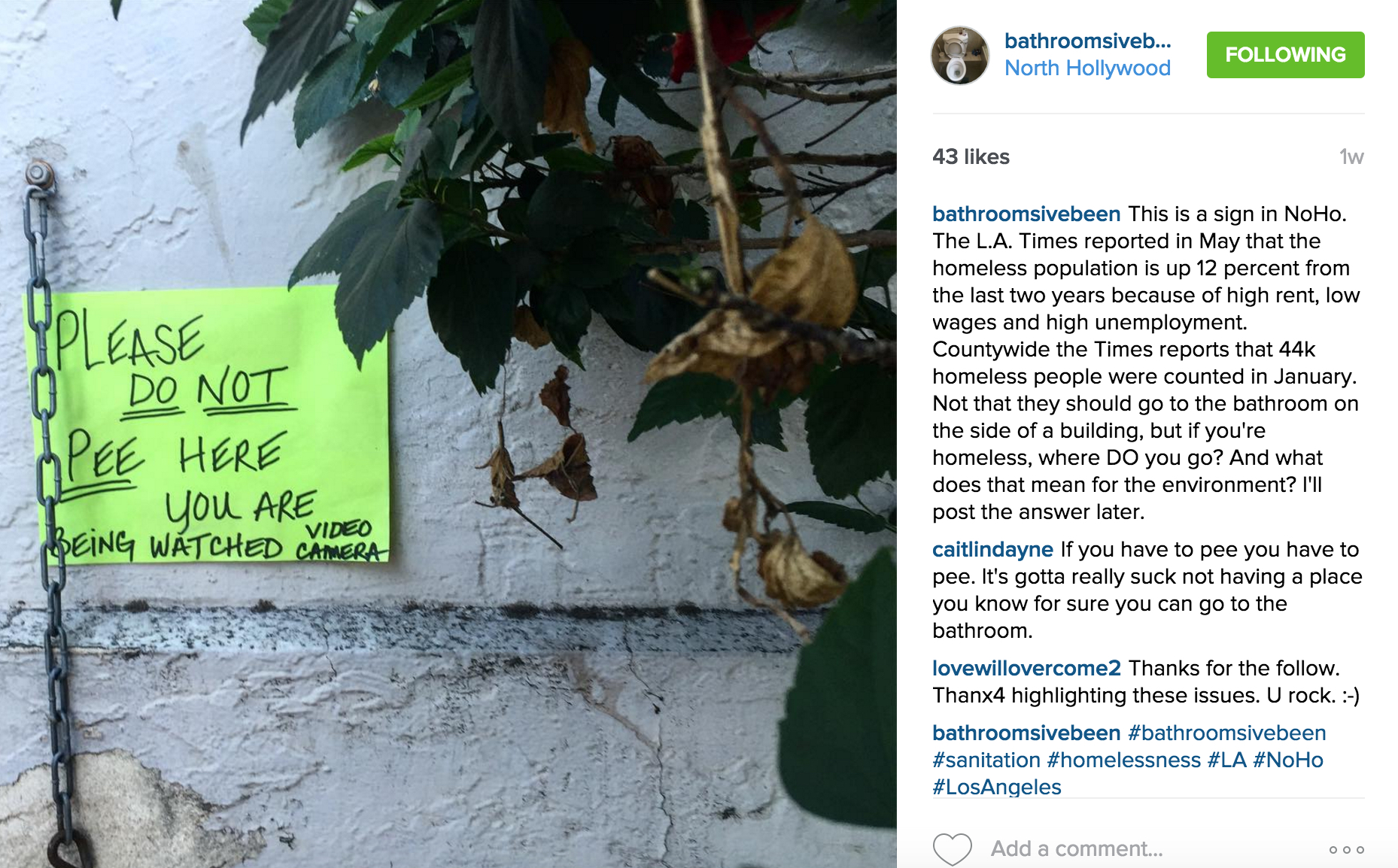 @bathroomsivebeen - instagram.com
@bathroomsivebeen - instagram.com
A lack of bathrooms and privacy is an added issue for menstruating homeless women and girls who can’t change their hygiene products in private, or simply can’t afford to buy them at all.
ALSO: Why Your Period is Being Unfairly Taxed
Female hygiene products are taxed in most states, and the FDA isn’t required to disclose the ingredients inside of them. This is because the FDA doesn't require hygienic manufacturers to provide ingredient labeling, a Harvard Law School paper noted.
“In its final rule for absorbency labeling, the FDA responded [that it] lacked the authority to mandate ingredient labeling [on tampons]."
Clean showers can also be scarce for homeless women and girls, and not washing during menstruation can lead to infections, the Huffington Post reported.
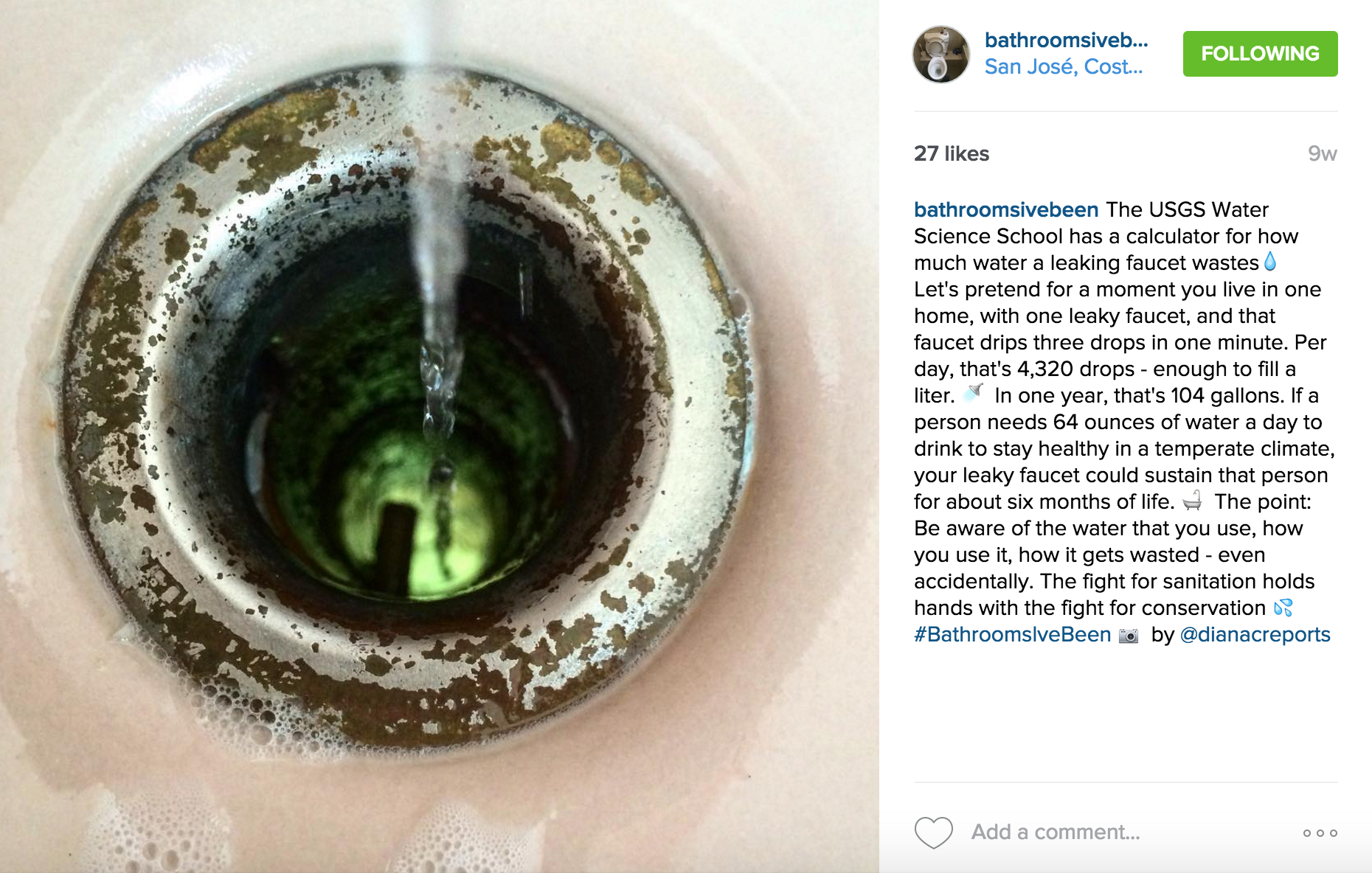 @bathroomsivebeen - instagram.com
@bathroomsivebeen - instagram.com
Other initiatives
There's a growing call to address how homeless women access bathrooms.
It was through my bathrooms research when I first connected with Annie Lascoe and Margo Lang, co-founders of Conscious Period, an organic tampon business based in Los Angeles. For every box of tampons bought, the company gives a free box to a homeless woman.
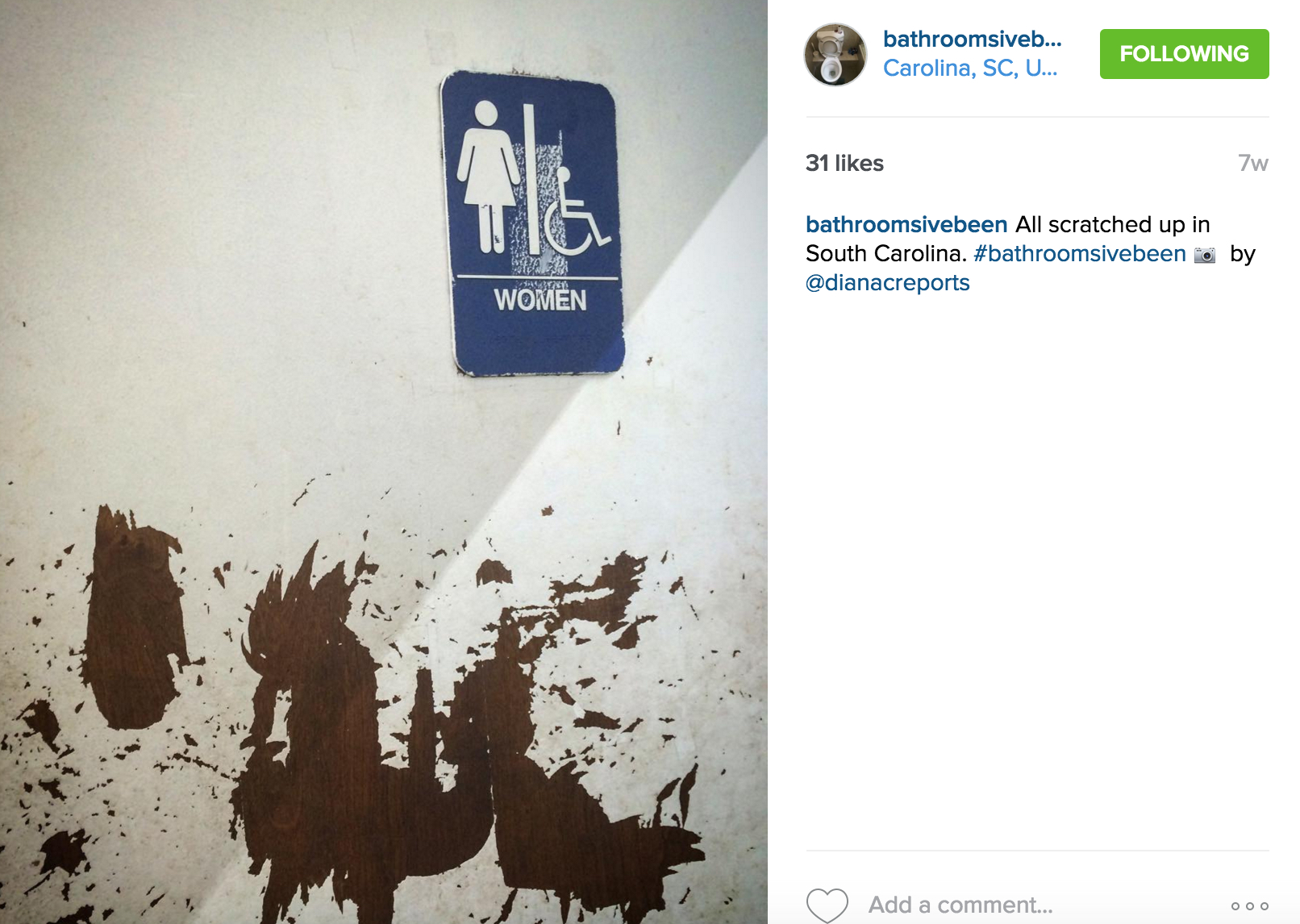 @bathroomsivebeen - instagram.com
@bathroomsivebeen - instagram.com
ALSO: Here Are 4 Cultures That Actually Respect Menstrual Cycles
“Just because you don’t have a home doesn’t mean that [you should be] stripped of your dignity or stripped of the right to be clean, and safe, and not humiliated,” Lang said over the phone.
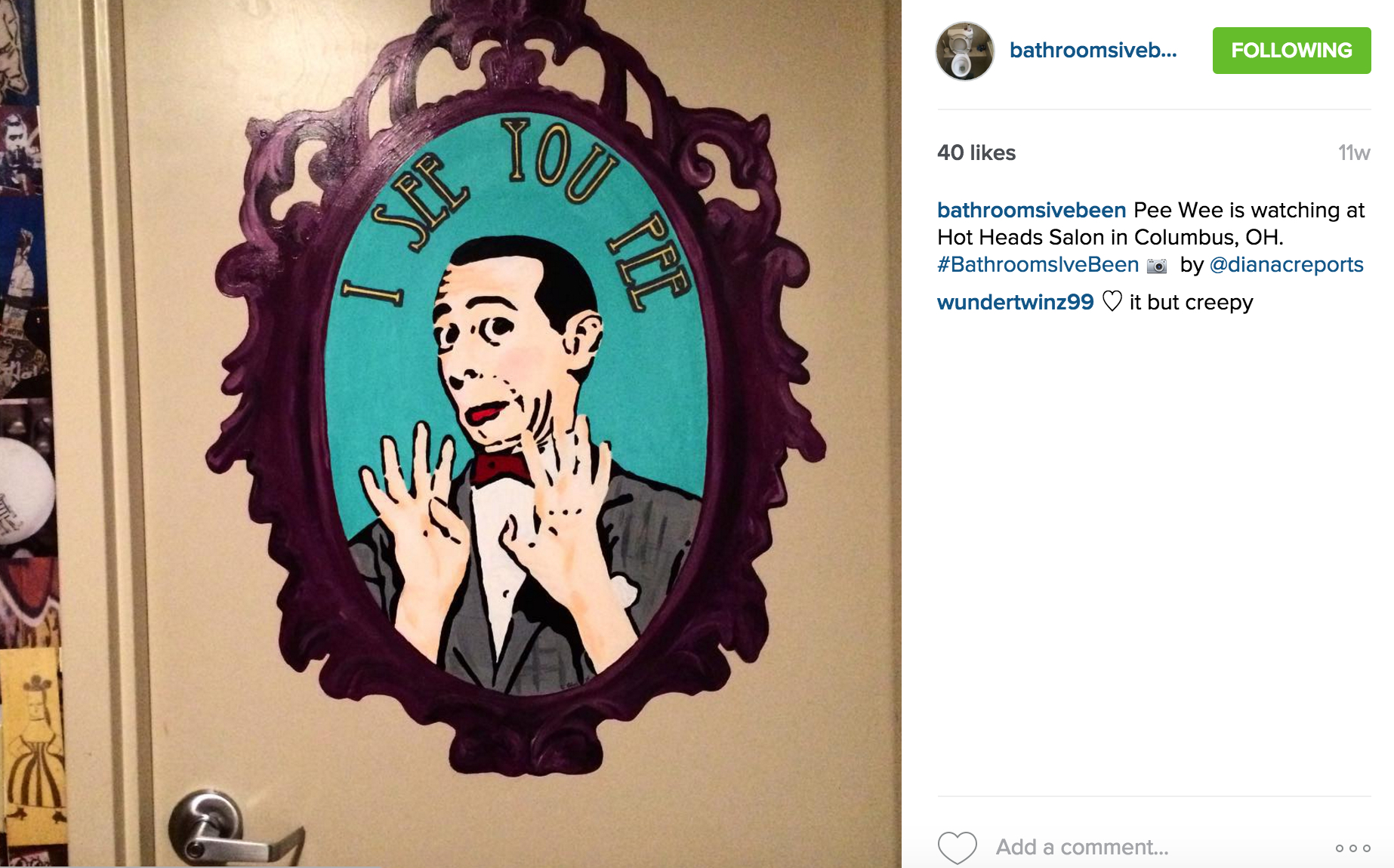 @bathroomsivebeen - instagram.com
@bathroomsivebeen - instagram.com
Lascoe described why access to these healthcare items can be so difficult.
“On top of that, because menstruation is such a taboo subject, and because policy makers haven’t been attuned to the needs of homeless or low income [women], it just hasn’t been addressed in any way."
ALSO: Why Ashton Kutcher is So Worked Up About Public Bathrooms
Investigating solutions
To investigate if there is a way to make sustainable, lasting products for low income women in the U.S., Lascoe traveled to India last summer with Jennifer Weiss-Wolf, a citizen activist and vice president for development at the Brennan Center for Justice at New York University’s School of Law.
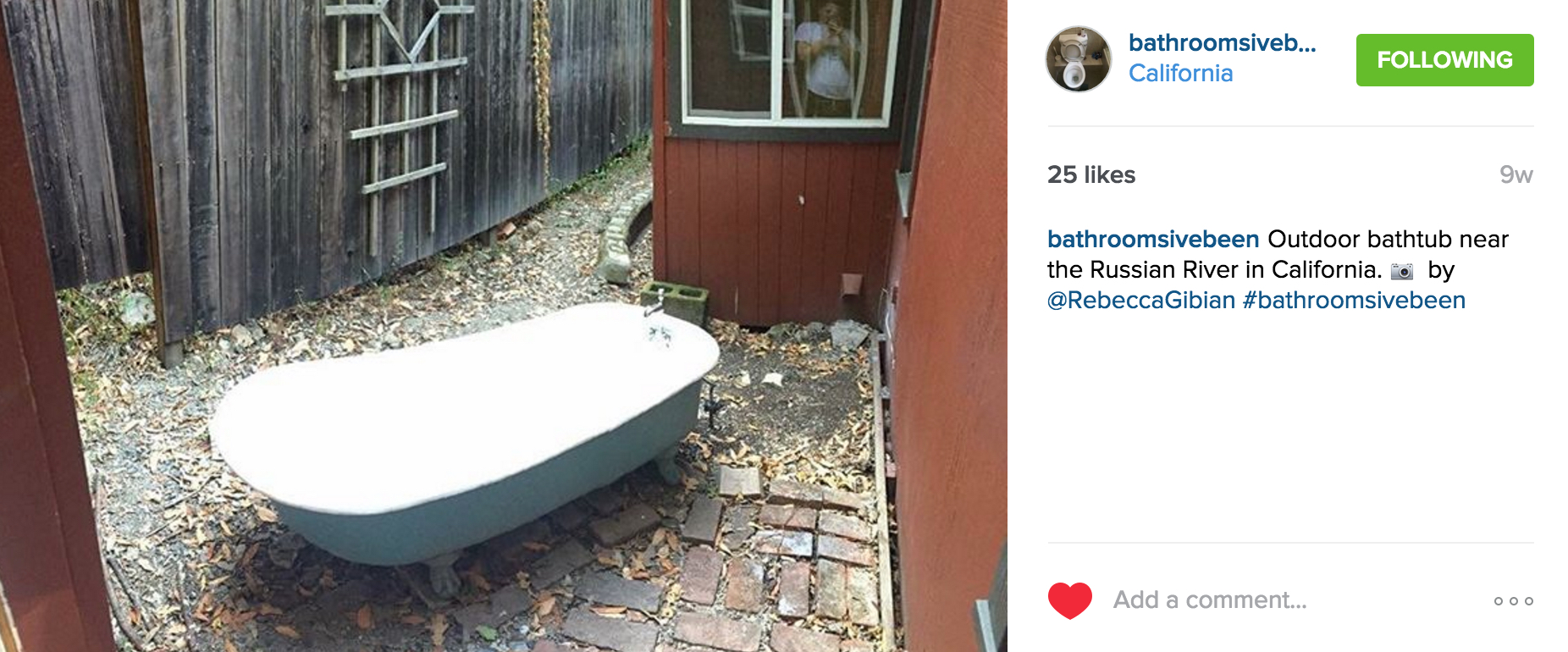 @bathroomsivebeen - instagram.com
@bathroomsivebeen - instagram.com
The two women sought out potential solutions from Arunachalam Muruganantham, the creator of a menstrual micro-enterprise model that supplies cost-effective machines to thousands of women in the poorest and most under-developed regions of India. Women learn how to use these machines, which allows them to build their own sanitary products for pennies on the dollar. Because of this development, Muruganantham was named as one of TIME's 100 Most Influential People in 2014.
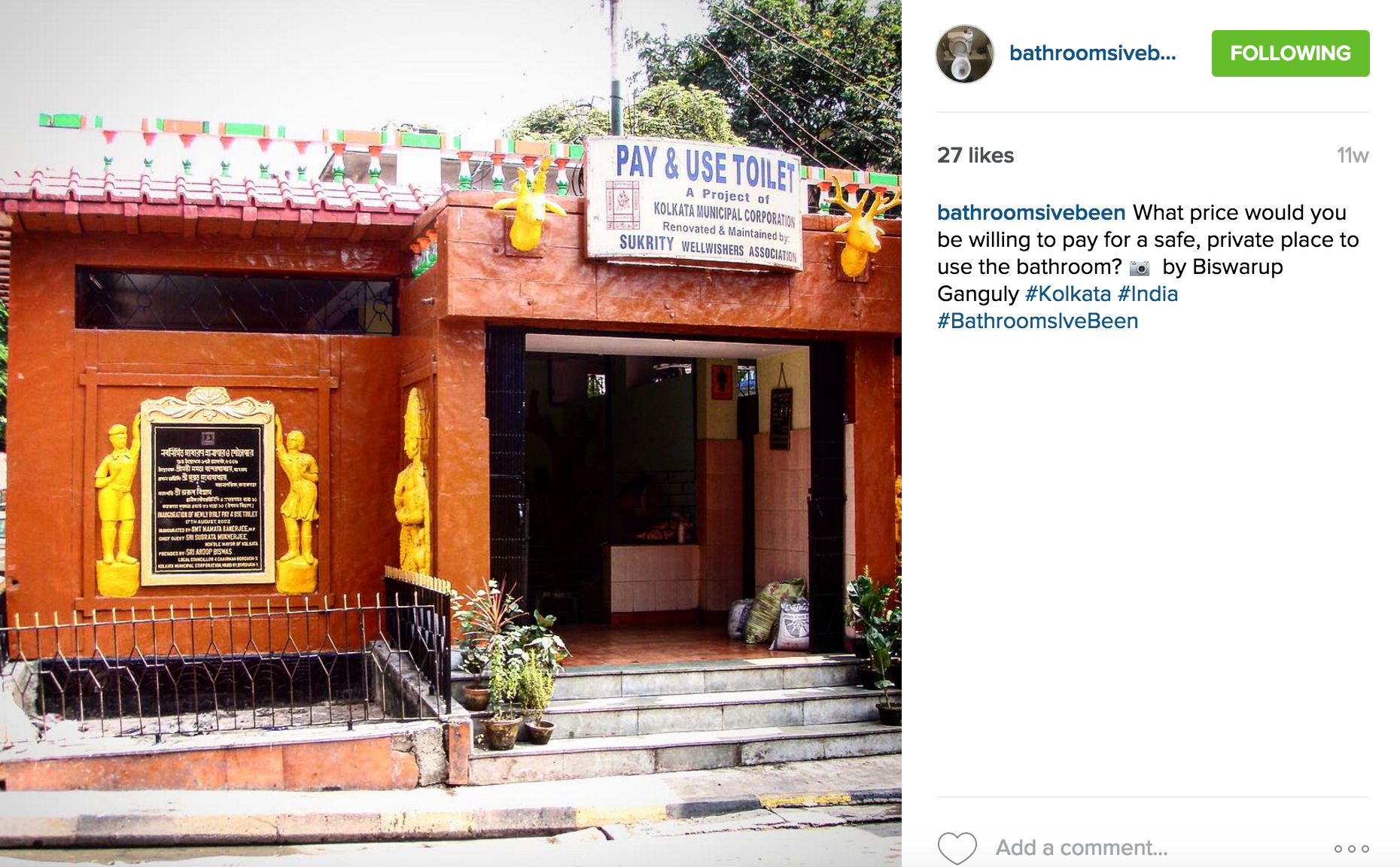 @bathroomsivebeen - instagram.com
@bathroomsivebeen - instagram.com
After seeing Muruganantham's inspiring invention at work, Weiss-Wolf documented the experience she and Lascoe had in the New York Times. Now, Weiss-Wolf tells me that there is so much more work to be done, but because the U.S. has a different culture and economy, the "work" might look different here than it does in India.
"As inspired as I was by the work he was doing, it depressed me a little bit when I thought about the situation here at home... [As a capitalist society] we're too big and successful to do something as grassroots and basic as what it is that he's doing. Yet what he's doing is brilliant."
ALSO: The Reviling Fight Against Gender Neutral Bathrooms
How can you help?
Find a toilet. Give a tampon. Petition lawmakers.
Weiss-Wolf, Lascoe and Lang show how powerful collaboration can be. These are important steps we are all taking, but without community support, they are just that: steps. We can’t make lasting change unless we demand it by documenting and battling the multi-faceted issue of sanitation access in America.
 @bathroomsivebeen - instagram.com
@bathroomsivebeen - instagram.com
For many women, it's easy to imagine what it's like to suddenly get your period and be in a place where you can't immediately address it.
“I think any woman can think about a time where she was stuck without a tampon and didn’t quite know what to do,” Wolf-Weiss said over the phone.
“How much longer can you wait until you get to the bathroom, or until you can get to the drugstore, or find someone who can lend you one? [Women know] what that feels like."
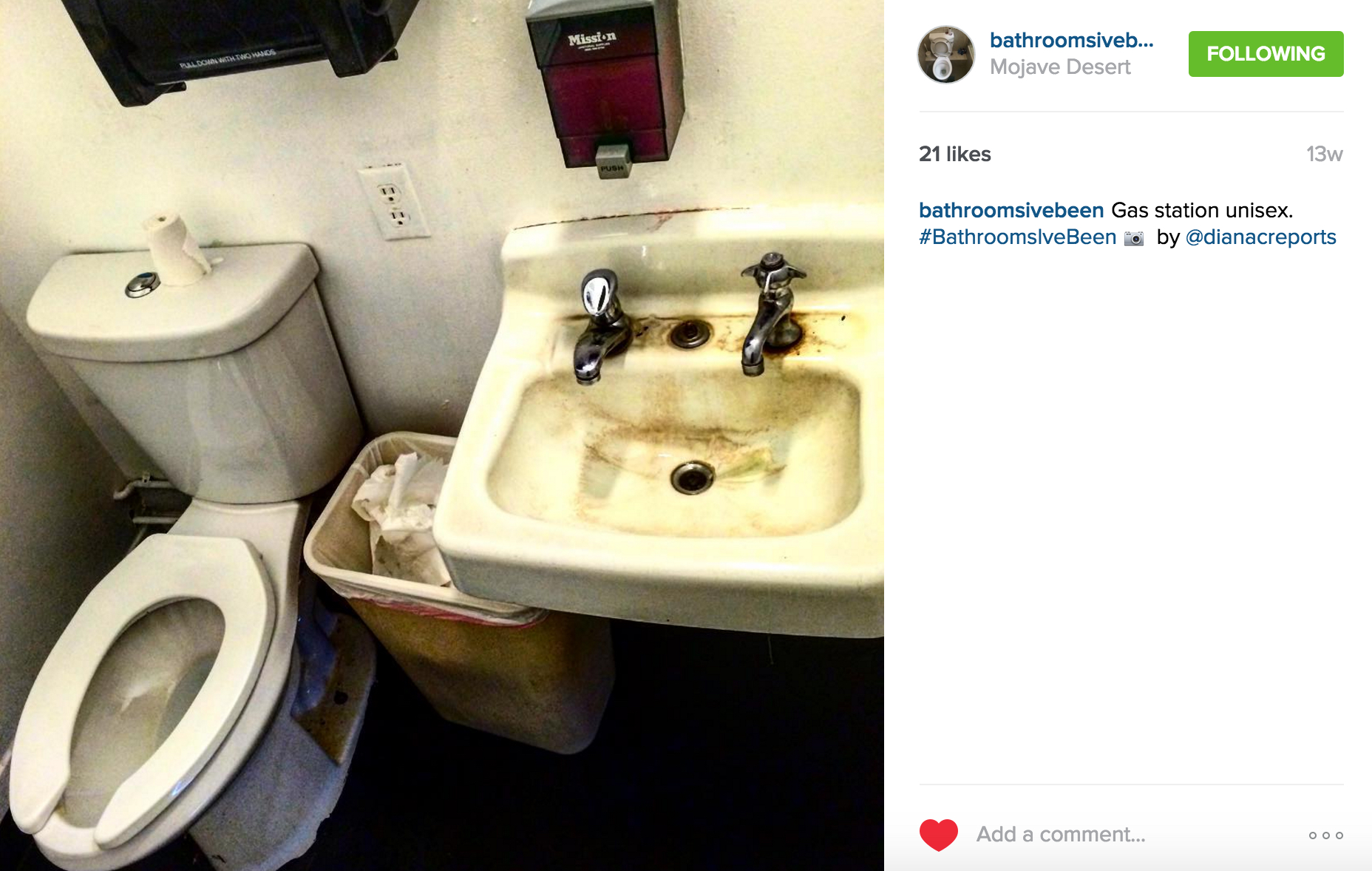 @bathroomsivebeen - instagram.com
@bathroomsivebeen - instagram.com
Now imagine you don't have any money in your purse to buy a tampon or a pad. And even if you did, there wouldn't be a safe, private space to change it in.
What would you do?
You can support Conscious Period or join Jennifer Weiss-Wolf and Cosmopolitan magazine in stopping states from taxing periods.
If you would like to join me in illustrating different types of bathrooms, send photos of any type of bathroom, anywhere in the world, to [email protected].
